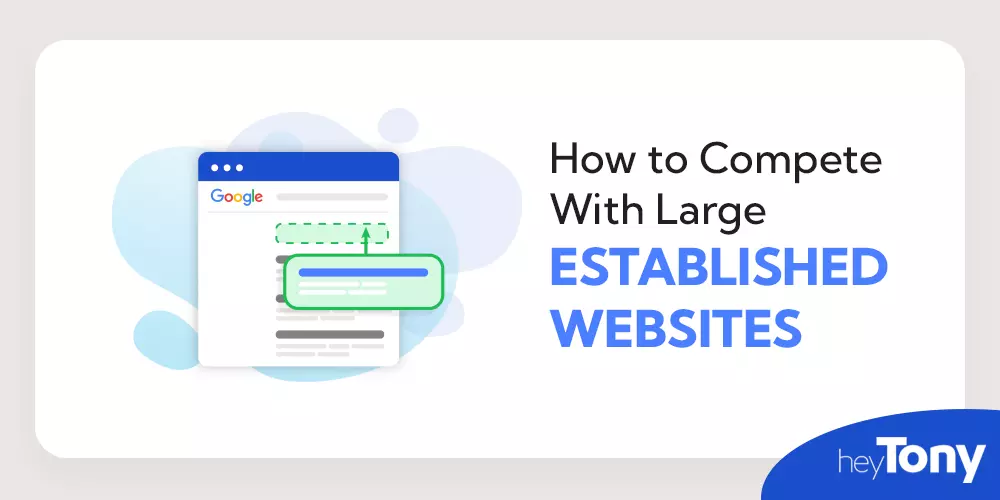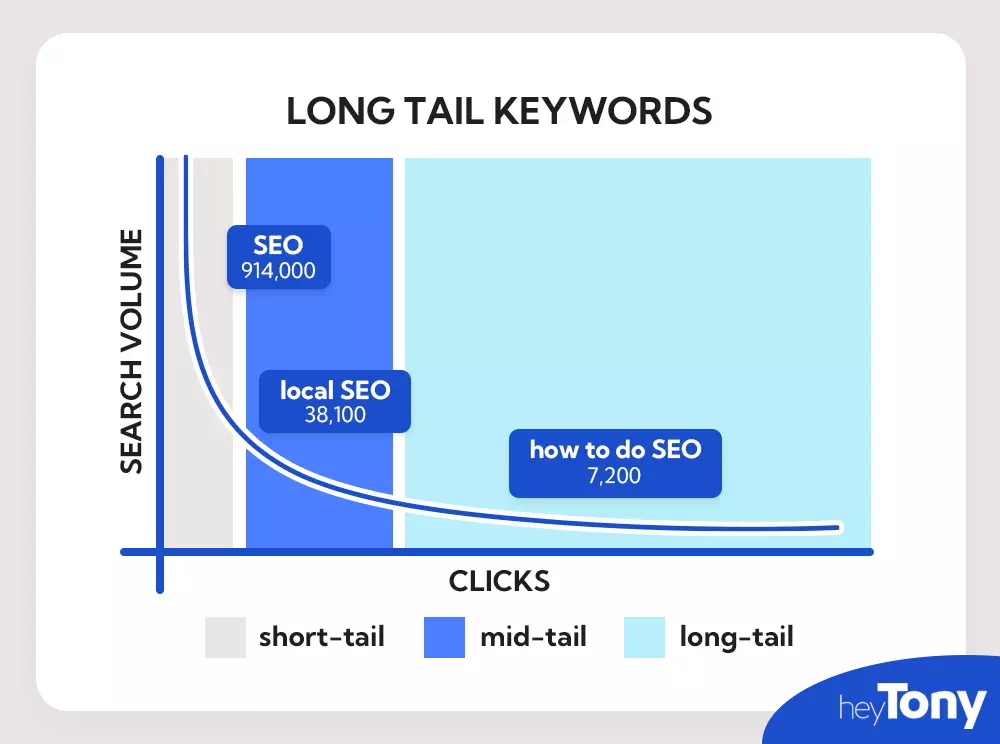
A goal for every website is to rank high in search results. This will lead to more visitors and more opportunities to make conversions. Competing for high search volume keywords can be difficult for many small websites. Thankfully there are ways you can compete with high-ranking websites and even outrank them on search engine results pages.
In this article, we will go over different ways to compete against high-ranking websites. In addition, we will also touch on the advantages of being a smaller website.
What Is Considered A High Ranking Large Website

Depending on the industry you’re in, you might define a high-ranking, large website differently. If there are few competitors in your industry there is also likely to have very little online information about relevant topics. By using tools like SEMRush and aHrefs to check the domain authority of the top-ranking websites, you can gain a good understanding of the competition and what you need to outrank them.
However, in a very competitive industry competition can be fierce. In high search volume, high competition industries like digital marketing, outranking established websites takes time and precision. In cases like these, your SEO strategy becomes extremely important. Having a well-thought-out strategy can greatly increase your success and get you ranking higher for competitive keywords.
Advantages Of A Small Website In Google Search Results
Smaller websites have a very distinct advantage over larger websites. It is their advantage of flexibility in their website design and layout. Smaller websites have more freedom to make changes to a page’s design, layout, body copy, and other elements due to having smaller development teams. This allows them to pump out updates quickly and react to algorithm changes in real-time. In addition, it also allows them to focus on a particular keyword with a higher keyword density than the competition.
What Advantages Do Larger Websites Have In Search Rankings
Larger websites have several advantages over smaller websites when competing in SEO. First, they typically have more resources they can allocate to creating content. In addition, they also have the advantage of domain age being a significant ranking factor for search engines.
Regarding technical SEO, the biggest advantage of a large website over smaller websites is its backlink profile. This includes both internal links and external links. Having plenty of backlinks from other websites shows search engines that you have authority in your industry. This leads older and larger websites to have more descriptive anchor text links pointed at them. Larger websites are also more likely to have established themselves in the industry and have become trusted by many users. This can lead to them having more pages per visit than smaller websites.
How Can A Small Website Compete In Search Rankings

Now that we’ve pointed out the different advantages of small and large websites, the next step is to understand how a smaller website can compete. Here are the strategies you need to know when competing against high-ranking websites.
- Focus on outranking individual pages
- Create better, more in-depth content
- Analyze their technical SEO for weak points
- Perform in-depth keyword research on relevant keywords
- Target long-tail keywords or a low-competition-specific keyword
- Regularly publish blog posts
- Set up free tools like Google Analytics to help track user data like click through rate, and organic traffic to measure the success of your marketing strategy.
Let’s go over each of these strategies in depth.
Focus on Outranking Individual Pages
When competing against large websites you should plan out the keywords you want to appear for. Take notes of the top-ranking pages of the larger websites and do an in-depth analysis of their on-page SEO. While their website may be large, it is common for pages to have little content and are only ranking highly for the websites domain authority.
If you can identify a page with weak content, improving on it can lead to your website outranking them due to having a higher word count, keyword density, and better header tags. This leads us to our next point.
Create Better, More In-Depth Content

If the page you want to outrank has 500 words, aim for 1000. If they include your target keyword 4 times, try to include it 8 or 9 times. You will be rewarded by search engines for providing in-depth, high-quality content.
If the page you want to outrank has no header tags separating sections, be sure to include them. It will greatly benefit your SEO to include your target keywords in these header tags. Furthermore, if the website you want to outrank has little to no images it presents an opportunity to brighten up your page with a dozen unique images and graphics.
Analyze Their Technical SEO for Weak Points

In some industries, large websites might be outdated to modern SEO best practices. This allows small websites to take advantage of their flexibility and quickly update page layouts to be responsive, or best suit the current algorithm.
Check to see if they are using the following technical SEO elements:
- XML Sitemaps
- CDN (content delivery networks)
- Schema Markup Language
- Use proper internal linking
- Have a good page loading time
- Make use of both a title tag and meta description
- Responsiveness and front-end visuals on mobile devices
- Small websites should be sure to have all of these SEO elements in place if they want to compete against larger, more established websites.
Target Long Tail Keywords

The last tip we have for small websites that want to compete against larger ones is targeting long tail keywords or a specific key phrase. Long tail keywords are search queries that are typically 3 or more words long. They often include descriptive text, adjectives, or questions.
Long-tail keywords tend to be less competitive than short-tail keywords which can lead to new SEO opportunities to compete with. By targeting long tail keywords you can find more pages that only rank high due to a website’s domain authority. Oftentimes these pages aren’t relevant to the search allowing you to create content specifically for it. This can lead to gaining a rank one position very quickly.
Regularly Publish New Blog Posts
Publishing blog posts is a great way to increase the number of keywords you rank for while increasing your own domain authority. It tells Google and other search engines that your website is creating new high-quality content. It also gives you more opportunities to create external links to other websites in your industry. There are many advantages to blog posts and they are a great content marketing strategy to deploy if you want to grow your organic traffic and begin competing for highly competitive keywords.
Want To See Better Search Engine Results?
If you want to learn more about how to compete with high-ranking websites check out the rest of our blog. We are always providing new information about search engine optimization, keyword research, link-building tools, and ways to use Google search console to improve your website’s rankings.
